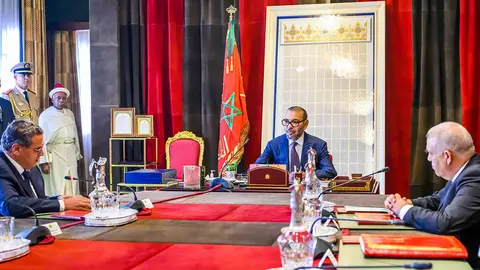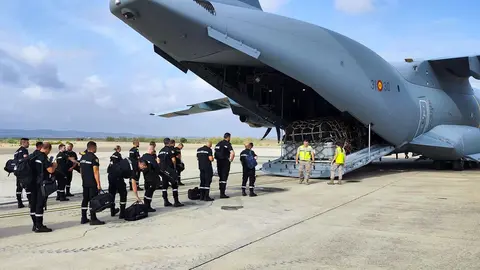Morocco expels two French journalists and tension continues between Rabat and Paris

Morocco has deported two French journalists for allegedly concealing their true profession while they were in Moroccan territory covering the terrible earthquake that struck the North African nation on 8 September, leaving around 3,000 dead and more than 5,600 injured, as well as extensive material damage.
According to reports in various media, such as Al-Arab, the two journalists entered the country for tourist purposes and allegedly did not request a licence or identification as journalists, a necessary condition stipulated by Moroccan law for entry into the country. Morocco thus announced on Thursday the deportation of these two French journalists who entered the country for tourist purposes and did not declare themselves to be journalists "as provided for by law", the official spokesman of the Moroccan government, Mustapha Baitas, also confirmed to the media.
Baitas said that "the two French journalists entered the country for tourism purposes (without mentioning their names) and did not apply for a licence, nor did they declare that they were journalists, as stipulated by law". The government spokesman also commented that some of the French media coverage of the earthquake is "not objective" and that no professional has been pressured either.

Meanwhile, as reported by the Associated Press news agency providing further details, reporter Quentin Müller and freelance photojournalist Thérèse di Campo, who work for the weekly Marianne, said they were forcibly removed from their hotel room in Casablanca on Wednesday by ten plainclothes policemen and put on the first flight to Paris following the deportation order.
Both Müller and Stéphane Aubouard, editor of Marianne, said the deportations were politically motivated in response to reports critical of the Moroccan administration. Meanwhile, Morocco denied the accusation and said that their expulsion was a procedural matter, as it applies to anyone entering national territory, and not for political reasons.
Moreover, according to Al-Arab, witnesses said that French journalists allegedly pressured witnesses to indicate that relief and rescue teams had not reached certain areas affected by the earthquake. Meanwhile, Morocco's National Press Council announced legal action against some French media outlets for irregularities in their coverage of the quake and for attacks on the Moroccan administration's handling of the quake's aftermath.

The Council noted that more than 300 foreign journalists worked to cover the events related to the earthquake in an atmosphere of transparency and freedom, visiting the affected areas and meeting with citizens.
The National Union of the Moroccan Press also denounced the behaviour of some French media in politicising the issue of the earthquake and the victims in order to damage the image of the Moroccan state, according to media outlets such as Al-Arab.

Difficult relations between Morocco and France
This situation revives the tension between Rabat and Paris after several episodes that have festered the relationship. There are major issues that pit the two countries against each other, such as the fact that the Moroccan kingdom criticises France for not supporting it closely on the issue of Moroccan sovereignty over Western Sahara, as other major nations have already done, or the large number of Schengen visas for Moroccans denied by the French state.
Added to this is the fact that in the aftermath of the terrible earthquake in Morocco, the Moroccan kingdom did not ask France for help, despite the French state offering to assist in rescue and emergency work. The King of Morocco, Mohammed VI, justified this decision on the grounds of his country's sovereign right to make decisions and that the best help is useful and necessary, ruling out an overload of assistance that could have damaged the good coordination on the ground between the teams of the Royal Armed Forces and Moroccan emergency and health services and the emergency detachments present on the ground from the countries that Morocco did ask for assistance, which were Spain, the United Arab Emirates, Qatar and the United Kingdom.
This situation generated controversy in France, despite the reasons given by the Moroccan state. Also in Moroccan social and political spheres, there was criticism of the fact that Emmanuel Macron, President of the Republic of France, addressed the Moroccan people through social networks to show his condolences and his offer of help instead of using the usual diplomatic channels or even the Moroccan media.










